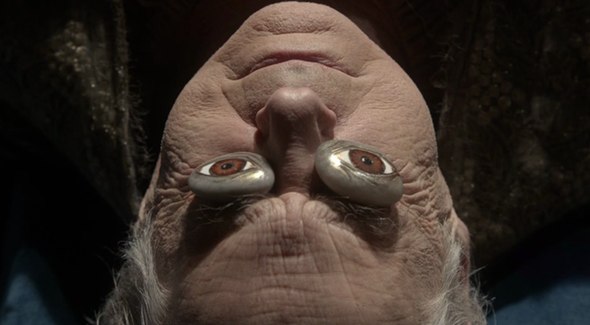

You know, we're sitting in writing workshops, and we're talking about how I feel like I don't have the like depth sometimes to write the story that I want to write or that I don't really know, that I'm like, ready to like write the piece that I'm looking for. Yeah, I feel like you and I have had this conversation, like a lot over the years, like even pre O 's. And they talk a lot about how much they needed to grow in order to to make this game, you know, the awesome piece of art that it is. So like, in this case with before your eyes, the team kind of all grew up together, and we're making this game, you know, in their early 20s. And yeah, Graham just had a lot of really interesting things to say not only about like, the mechanics of the game, but also, I think a big part that we were really drawn to was what we what we've been talking about a lot this season of like, the reality of the dream. And you know, it's about the length of a of like a movie, maybe like an hour and a half, two hours long. You know, we talked to the writer and creative director, Graham parks, about kind of how they conceptualized before your eyes from that mechanic of like, you know, using the eye blinks to move forward in time, and something that I was really fascinated about playing the game and then talking to Graham, about the game was this kind of like that tension and friction, that you're talking about Ben of like, how do you write a story or a narrative, where the player has such like an impactful muck mechanics that they can impact how the story progresses? And like, you know, how do you make sure that you're kind of conveying what you're trying to say, when you know, somebody might not see everything that you've written? I felt like that was like a really, it made for some really compelling moments throughout the game.

And I think that mechanic could have been a gimmick, but here is just like used really, really beautifully to tell the story about kind of life flashing before your eyes. And so eventually you're going to blink, and it's going to move the story forward.

And so it creates this like great kind of storytelling tension where there will be these moments that you really want to sit in and spend time in because there's like interesting story elements, or there's something that's really beautiful, but you can't stop yourself from blinking. But anytime you blink as a player, the blinks will shoot you forward in time. And so what happens is you keep being put back into moments throughout your life. And you're about to kind of figure out whether or not you're, you're basically going to heaven or to hell. And so kind of the setup, the story, the bit is that you are a character who has died, you're going to the afterlife, you're kind of in the afterlife. Yeah, Phil, I feel like this is an interview I was really excited for because this is one of the games that I played, just in the last kind of year that just stood out to me, the cool kind of, like gets you in the door piece of it is the game tracks your eye movements, and uses that to tell its story. And could you tell us a little bit about what this one is all about?

And Ben, today, we have another exciting conversation to add to the docket this time about a game called before your eyes. My name is Philip Russell, and I am with my co host, Ben Thor. What's good everybody? Welcome to origin story, the podcast that interviews creators about where they came from, to understand how they got here.


 0 kommentar(er)
0 kommentar(er)
